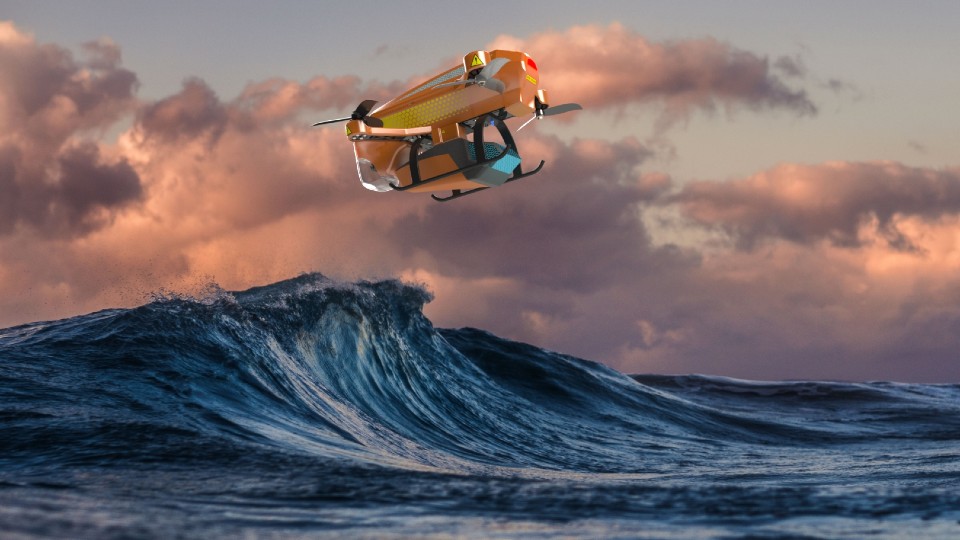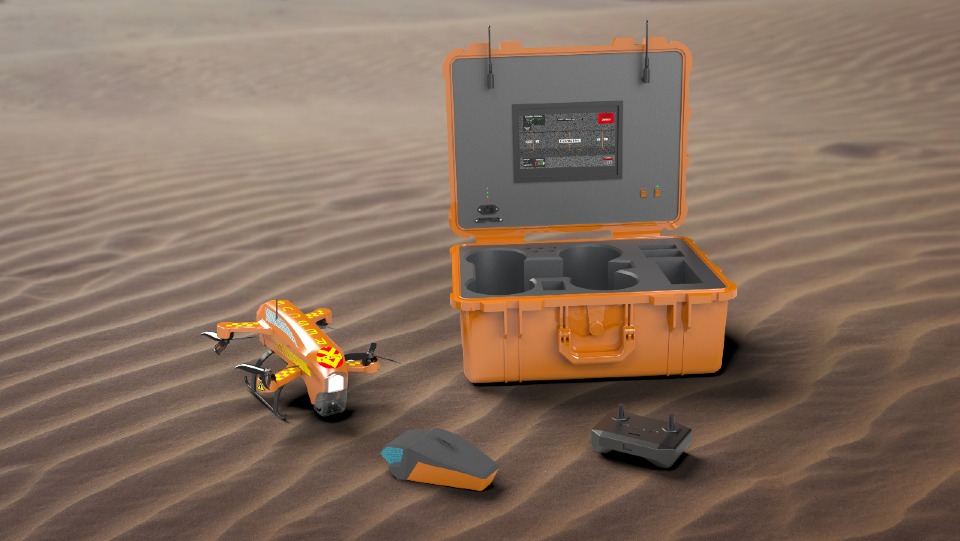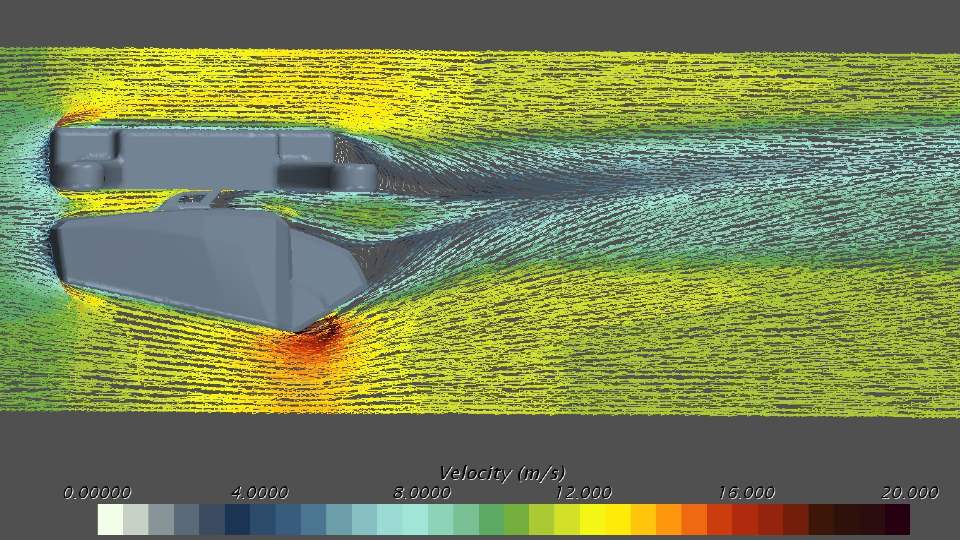He watched as two off-duty lifeguards battled the waves to reach the struggling casualty, but the height of the waves and speed of the water made it difficult to reach them quickly.
Dominic says at one point the teen was without a flotation aid for around 35 seconds and, though thankfully the rescue mission was successful, he was left thinking “why can’t we just fly something over the waves and drop a flotation device with the casualty?”.
The Product Design and Technology student decided to explore the idea for his final year project and found using drones for this scenario had been prototyped.
However, the drones used were large, commercial drones and carried big, bulky rescue equipment – meaning they couldn’t be easily loaded onto the back of a rescue quad bike or a car, and certainly not transported on foot.
Dominic, who held a National Pool Lifeguard Qualification (NPLQ) for six years, wanted to design a smaller and more portable system that could be deployed much faster – even by emergency personnel without specialist lifeguard training – as time is of the essence when someone in the water is in danger.
As part of his final year project, Dominic has designed ‘SERVITA’ – a small, compact drone that flies above hazardous waters to locate individuals in distress and deploys a buoyancy aid that automatically inflates when hitting the water, helping casualties stay afloat while they wait for a rescue team to reach them.
 SERVITA.
SERVITA.
The proposed design uses technology such as GPS, a live-feed camera, and two ‘servo’ mechanisms that allow the pilot to control the pitch angle of the camera and the inflatable-release mechanism.
The inflatable buoyancy aid uses existing technology inspired by automatic inflating lifejackets, and, though this technology is not inherently new, Dominic says its use and deployment via drone is a new application.
“I picture SERVITA being used by beach lifeguards and emergency services to provide rapid support to individuals who are in aquatic distress and the time in which they can be rescued is increased by variables such as distance, sea conditions, and location, or the casualty is deteriorating rapidly”, said Dominic.
“This product is needed to help save the lives of weak swimmers where rescue cannot be performed immediately.
“The early intervention SERVITA can provide could be the matter of life and death for some casualties.”
 SERVITA components.
SERVITA components.
Dominic has created a functional prototype of the drone and accompanying inflatable, and testing has been conducted on a small scale.
He also used turbulence and velocity simulations in the product’s developmental phase to ensure SERVITA’s design allows for optimum drone performance.
 SERVITA velocity simulations.
SERVITA velocity simulations.
Though the designer has already been offered a job after university with respiratory and ballistic protection manufacturers Avon Protection – where he helped develop a ventilation hood that has the potential to save lives of COVID-19 patients – he hopes to one day develop SERVITA further and conduct tests over open water in simulated emergency scenarios.
Dominic said: “Ultimately, the aim of the product is to preserve life and reduce the rate in which casualties deteriorate in water to reduce their injuries and impacts on health.
“I believe it is important to design for the time of our greatest needs.”
SERVITA is being showcased as part of the Degree Shows 2021, which can be viewed here.